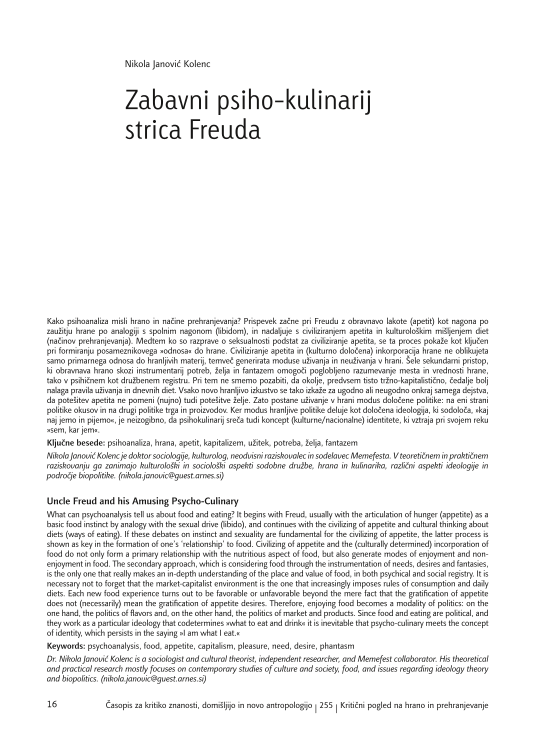What can psychoanalysis tell us about food and eating? It begins with Freud, usually with the articulation of hunger (appetite) as a basic food instinct by analogy with the sexual drive (libido), and continues with the civilizing of appetite and cultural thinking about diets (ways of eating). If these debates on instinct and sexuality are fundamental for the civilizing of appetite, the latter process is shown as key in the formation of one’s ‘relationship’ to food. Civilizing of appetite and the (culturally determined) incorporation of food do not only form a primary relationship with the nutritious aspect of food, but also generate modes of enjoyment and non-enjoyment in food. The secondary approach, which is considering food through the instrumentation of needs, desires and fantasies, is the only one that really makes an in-depth understanding of the place and value of food, in both psychical and social registry. It is necessary not to forget that the market-capitalist environment is the one that increasingly imposes rules of consumption and daily diets. Each new food experience turns out to be favorable or unfavorable beyond the mere fact that the gratification of appetite does not (necessarily) mean the gratification of appetite desires. Therefore, enjoying food becomes a modality of politics: on the one hand, the politics of flavors and, on the other hand, the politics of market and products. Since food and eating are political, and they work as a particular ideology that codetermines »what to eat and drink« it is inevitable that psycho-culinary meets the concept of identity, which persists in the saying »I am what I eat.«




